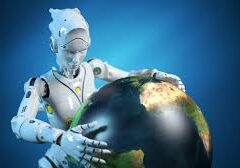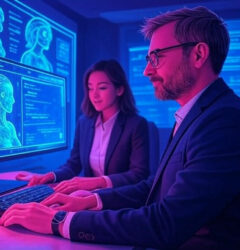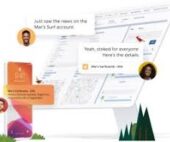Is AI Replacing Developers? The Truth About AI-Generated Code
Anthropic’s CEO predicts AI will write 90% of code within 3 to 6 years. Google already reports 25% of its code is AI-generated. With numbers like these, it’s tempting to wonder: Are developers becoming obsolete?
The short answer? No.
Here’s why—and what AI-generated code actually means for software development.
1. AI Isn’t Replacing Developer Work—It’s Changing It
Just because AI writes code doesn’t mean developers do less.
- AI is more like a “smart autocomplete”—it suggests code based on context, but developers still guide, review, and refine it.
- Tools like GitHub Copilot may generate 50%+ of the code in some cases, but developers remain essential for:
- Architecting solutions
- Debugging AI mistakes
- Ensuring code integrates properly
- Prompting AI for complex tasks (like building a full component) still requires manual review, refactoring, and testing.
AI doesn’t eliminate developer effort—it shifts it.
2. AI Writes More Code Than Necessary (And That’s a Problem)
AI doesn’t know when to stop.
- It generates extra, redundant, or even broken code just because it was asked to.
- Example: When asked to add hover effects to an animation, AI added unnecessary handlers—even though the feature already worked without them.
- GitClear’s research shows AI leads to more copy-pasted, bloated code, violating DRY (Don’t Repeat Yourself) principles.
More AI-generated code ≠ better software. In fact, poorly managed AI code can make apps harder to maintain.
3. Developers Have Always Relied on External Code
Before AI, developers used:
- Stack Overflow (for solutions)
- Codepen/Shadertoy (for front-end techniques)
- Frameworks like React/Vue (to avoid boilerplate)
AI is just another tool—like a smarter Stack Overflow.
- The real skill isn’t writing every line from scratch—it’s knowing how to assemble, debug, and optimize code into a working system.
- Bad developers blindly copy AI code (just like some did with Stack Overflow).
- Good developers use AI to accelerate work while maintaining quality.
The Worst Mistakes Companies Can Make with AI Code
❌ Setting Arbitrary “AI Code %” Targets
- Goal: Efficiency, not just AI-generated lines.
- Forcing AI adoption without oversight leads to messy, unmaintainable codebases.
❌ Assuming AI Reduces the Need for Developers
- AI can’t replace human judgment in architecture, security, and optimization.
- Developers who adapt will thrive—those who resist won’t.
❌ Ignoring AI’s Blind Spots
- AI regurgitates existing patterns—it won’t invent novel solutions.
- Human oversight is mandatory to catch errors and ensure quality.
The Future: AI as a Developer’s Co-Pilot
- AI won’t replace developers—but developers who use AI will replace those who don’t.
- The best engineers will focus on:
- System design (not syntax memorization)
- Code review & optimization (not manual typing)
- Problem-solving (not just implementation)
The bottom line? AI is changing coding—not eliminating it. Developers who embrace AI as a tool will stay ahead. Those who fear it will fall behind.
Key Takeaways:
✔ AI generates code, but developers still design, debug, and refine it.
✔ Blindly trusting AI leads to bloated, buggy software.
✔ The best developers use AI to augment—not replace—their skills.
✔ Companies should encourage AI adoption—not mandate arbitrary AI code quotas.












